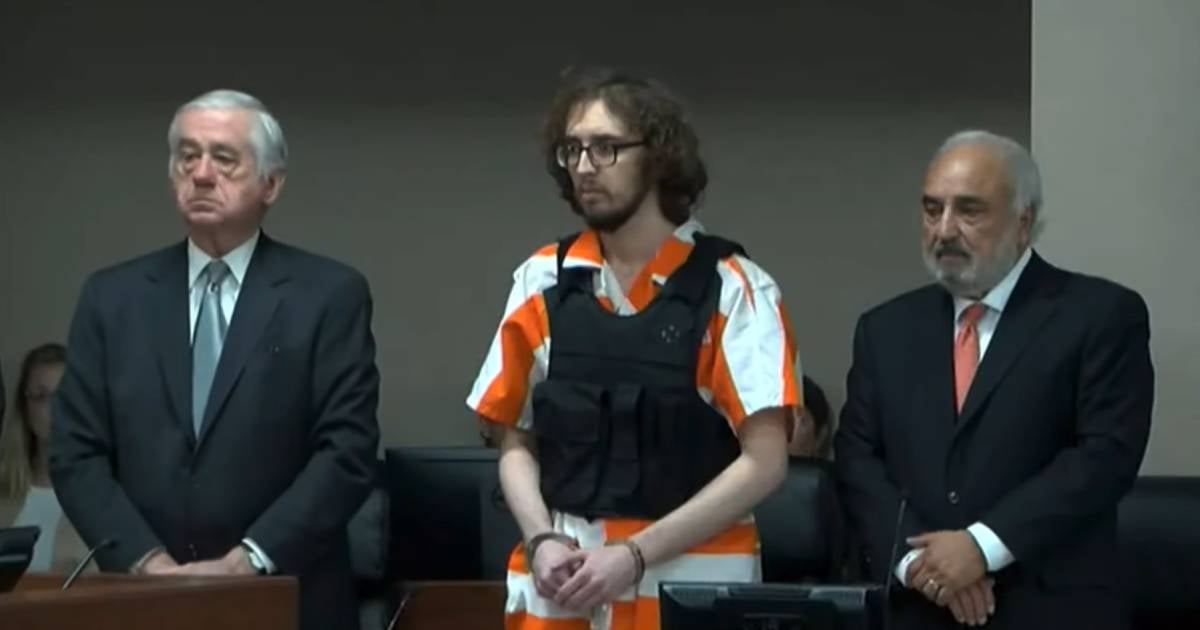Patrick Crusius, the individual behind the devastating mass shooting at a Walmart in El Paso in 2019, which resulted in the deaths of 23 people and injuries to 22 others, was sentenced on April 21 to life in prison without the possibility of parole after pleading guilty to capital murder in a state court. Crusius, now 26, had already received 90 consecutive life sentences in federal court earlier in 2023 for hate crimes and firearms offenses. This state sentence reinforces the federal ruling, ensuring he will spend the remainder of his life incarcerated without parole, as reported by Telemundo.
The attack on August 3, 2019, at the Cielo Vista Walmart ranks as one of the deadliest in modern American history, driven by racial hatred. Among the victims was a 15-year-old high school athlete, along with immigrants, a retired city bus driver, educators, merchants, including a former steelworker, and several Mexican nationals who had crossed the border for shopping.
Crusius surrendered to authorities after being surrounded by police, and it was soon discovered that he had posted a manifesto on an online forum frequented by extremists. In it, he justified his actions as a “response to the Hispanic invasion of Texas” and expressed admiration for the Christchurch, New Zealand, massacre perpetrator from earlier that year.
Community Impact and Legal Proceedings
The shooting was deemed a potential hate crime by the El Paso police chief, while the FBI launched a domestic terrorism investigation. At the time, Mexican President Andrés Manuel López Obrador condemned the attack.
El Paso County District Attorney James Montoya decided against pursuing the death penalty in the state trial after consulting with the victims' families, many of whom wished to avoid prolonged legal proceedings and achieve a conclusive resolution. “This is about allowing the families of the 23 victims who lost their lives on that tragic day, and the 22 injured, to finally have closure in our judicial system,” Montoya stated in a release.
Montoya further emphasized, “Now, nobody in this community will have to hear the perpetrator's name ever again. No more hearings. No more appeals. He will die in prison.”
Victims' Families Seek Closure
During the sentencing hearing, victims' families delivered emotional testimonies, remembering their loved ones and condemning Crusius's actions. State Judge Sam Medrano described the attack as an attempt to instill terror but praised the unity and resilience of the El Paso community.
With this sentence, a painful chapter closes for the affected families and the broader community, who have sought justice and closure for nearly six years following a tragedy that profoundly impacted El Paso and the nation.
El Paso, a border city adjacent to Ciudad Juárez, has a predominantly Hispanic population, and the attack left a significant impact on Latino, Cuban, and migrant communities across the country. The violence, fueled by white supremacist ideologies, highlighted the urgent need to address racism, gun access, and the rise of extremist rhetoric in the United States.
Key Questions about the El Paso Walmart Shooting and Sentencing
What motivated the El Paso Walmart shooting?
The El Paso Walmart shooting was motivated by racial hatred, as evidenced by a manifesto posted by the shooter, Patrick Crusius, where he described his actions as a response to a perceived "Hispanic invasion" of Texas.
How did the El Paso community respond to the attack?
The El Paso community responded with unity and resilience, despite the attack's intent to instill fear. Community leaders and residents came together to support victims' families and to condemn the violence.
Why was the death penalty not pursued in the state trial?
The decision not to pursue the death penalty in the state trial was made after consulting with victims' families, who largely preferred to avoid prolonged legal proceedings and reach a definitive resolution.
What was the impact of the El Paso shooting on national discussions?
The El Paso shooting brought national attention to issues of racism, gun control, and extremist rhetoric in the U.S., underscoring the need for comprehensive measures to address these challenges.
